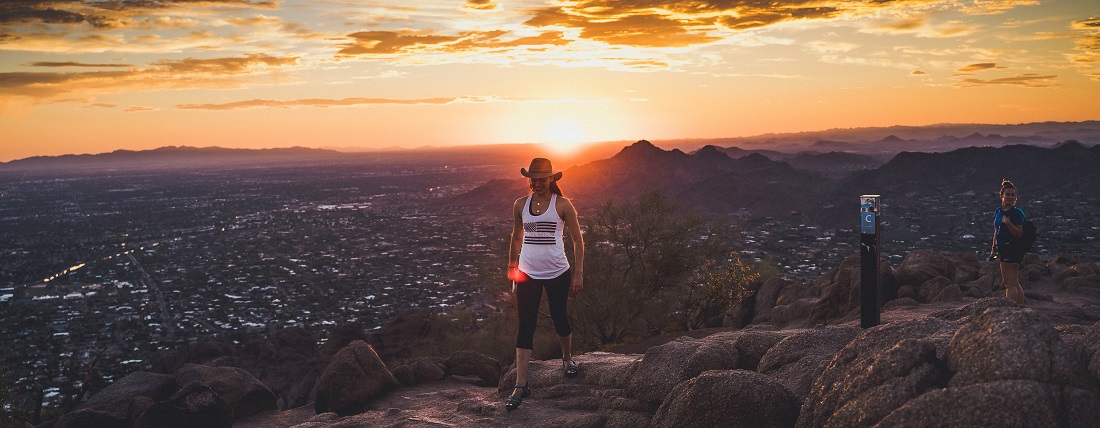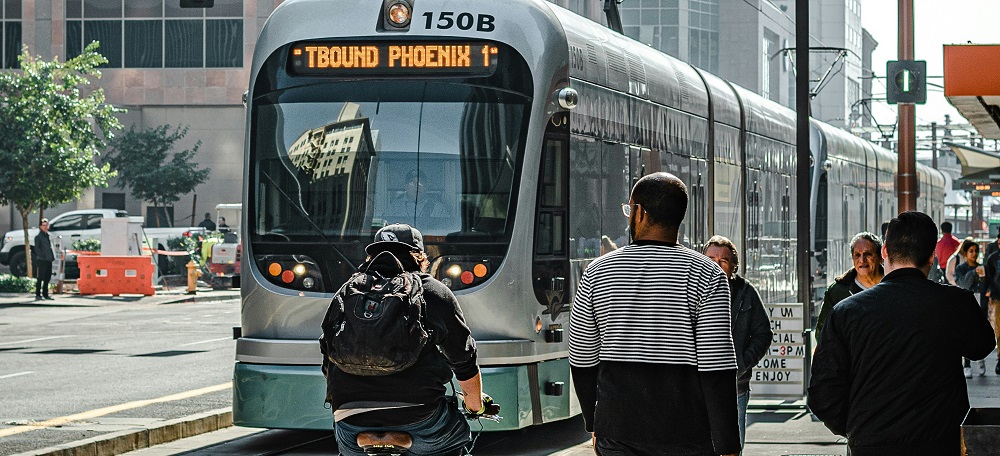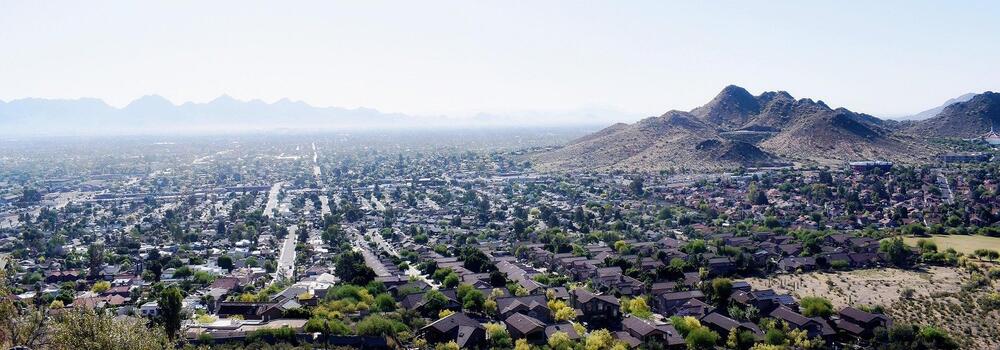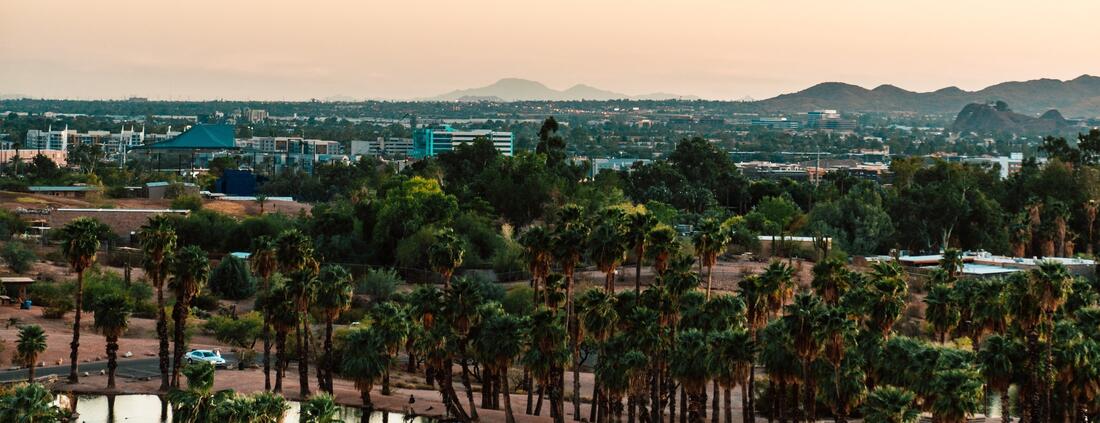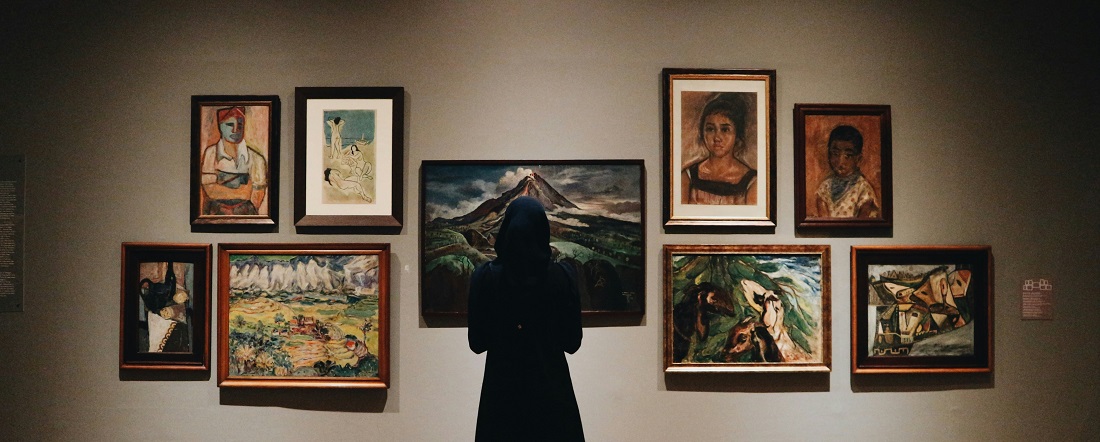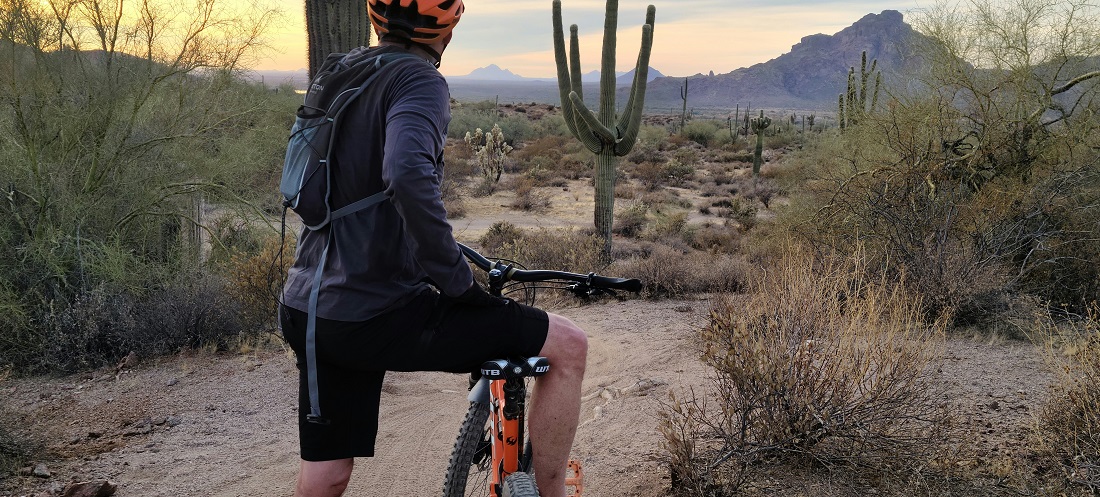The real estate market in Phoenix has thrived in recent years. With increasing property prices, investors have seen huge potential in housing here. There has been a slight shortage of rentals in popular parts of the city due to the city's growing population.
On the whole, though, new arrivals shouldn’t have any difficulty finding accommodation in Phoenix. Not only is there a huge spectrum of choices regarding property types and architectural styles, but prospective residents will also be pleased to learn that rentals are exceptionally reasonably priced compared to other major cities in the US.
Areas and suburbs in Phoenix
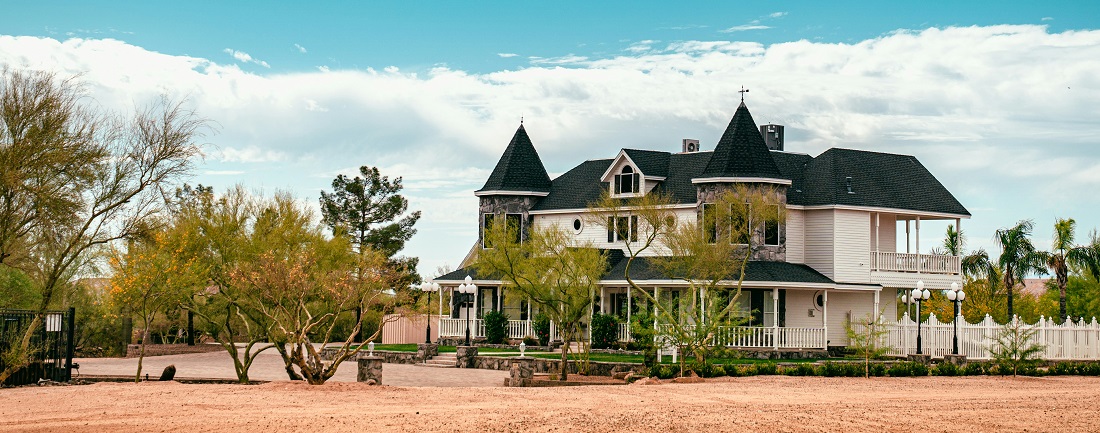
Phoenix is home to many sprawling neighbourhoods with beautiful homes that offer excellent value for money for its residents. With more than 200 golf courses and over 180 parks, Phoenix gives its residents plenty of opportunity to get outdoors regardless of which area or suburb they choose.
Those looking for convenience will love neighbourhoods such as Downtown Phoenix and Alhambra. These neighbourhoods boast excellent public transport and road network links while also offering many economic opportunities. Young professionals, students, and small families often base themselves here to enjoy the wonderful culinary scene and recreational activities on offer.
For families with bigger budgets, Paradise Valley is a wonderful neighbourhood to call home. The schools in the area are excellent, while the homes are stately mansions that offer easy access to the Phoenix Mountains. Though small, Encanto Village is a sought-after suburb for families looking to enjoy the outdoors. Encanto Park and the amusement park are the area's major selling points. The neighbourhood also has access to the Valley Metro Rail, making it perfect for newcomers looking to commute.
Read Areas and Suburbs in Phoenix to learn more about the city's neighbourhoods.
Types of accommodation in Phoenix
Prospective residents who haven’t yet visited Phoenix often assume that housing consists of rows upon rows of cookie-cutter homes with a distinct lack of character or room for creativity. But once people start researching properties in Phoenix and the wider ‘Valley of the Sun’ they’ll soon realise that there is much diversity in terms of architecture and the city boasts a wide range of homes to suit a variety of lifestyle preferences and needs.
Apartments
Those who wish to reside close to the downtown area will find that apartments are the main accommodation option available here. Apartments in Phoenix tend to be pretty sleek and modern. Relative to other types of housing in the city, apartments located close to the city centre tend to be pricier due to their favourable location. Apartment living in Phoenix is an option that works well for single professionals and could benefit young couples finding their feet in the city.
Condos
Condos are another popular housing option in Phoenix. Generally, condos are found in areas close to Phoenix’s city centre, but there are some further afield as well. Essentially, condos are similar to apartments and are available in various sizes. The major difference lies in the availability of communal facilities. Condos are based within complexes where residents can access a range of shared amenities such as laundry families, fitness centres, swimming pools and gardens. They are a great option for new arrivals because the setup features a strong sense of community and allows people to become part of a network.
Historic bungalows
Sometimes referred to as craftsman homes, these humble bungalows are found in traditionally arty parts of Phoenix, such as Roosevelt. While the bungalows are quite simple in design, they tend to be fairly spacious and are full of character, featuring natural elements of wood and stone, as well as beautiful fireplaces. These homes are a great option for people drawn to the Bohemian lifestyle of the Arts District and those looking for a simple but unique type of housing.
Family homes
Moving further afield, away from downtown Phoenix, newcomers will have greater choice in terms of housing style. A big driving force that draws people to Phoenix is the affordable property prices and the broad range of comfortable family homes on offer. Here, prospective new residents, particularly those looking to buy property and settle down in Phoenix, are sure to find a housing style that meets their preferences. From Colonial Revival mansions to Tuscan-style villas and ranch homes, residents are spoilt for choice. Most family homes in Phoenix have a pool, which is a godsend on those scorching Arizona summer days.
Finding accommodation in Phoenix
Even before prospective residents start considering the logistics of their relocation to Phoenix, it is a good idea for them to spend some time trawling internet property portals to get an insight into the property market. Not only will this internet research allow prospective residents to gauge rental prices and figure out what they can afford, but it also provides a good opportunity for them to get some idea of areas and suburbs of Phoenix that might be suitable to their lifestyle and housing needs.
Once new arrivals have narrowed their requirements and established which neighbourhoods are worth exploring further, they could approach real estate agents who work in those specific areas. These professionals have an intimate knowledge of the property market and are well-placed to help those unfamiliar with the city find the perfect home. Real estate agents often have access to properties that haven’t yet been listed publicly, so they may be able to expose newcomers to a broader range of accommodation options.
Useful links
Renting accommodation in Phoenix

While the population of Phoenix is increasing, the rate at which newcomers are moving to the city is not so high that demand for property has exceeded supply. This means that new arrivals shouldn’t struggle to find a suitable home in the city. That said, certain suburbs are particularly popular, perhaps because of a favourable location or the presence of good public schools. Property in such places is likely to move much quicker, so residents looking to rent or buy in these sought-after areas may need to act a little faster than normal.
Making an application
The rental process in Phoenix is fairly standard and in line with the rest of the US. Once prospective tenants have found a suitable property, they will need to file an application via the agent or directly approach the landlord. Then, there is an applicant screening process whereby certain reference and credit checks are carried out.
It is usually expected that an individual or family unit has a combined income that is at least three times the cost of the rental rate. Non-US citizens are advised to set up their social security number and US bank account ahead of time to speed up this process. Once an applicant has successfully been screened, the landlord and tenant can sign the lease.
Leases, costs, and fees
Generally, a standard lease in Phoenix is 12 months after which the lease can be renewed, usually with an increase in rental attached. It is possible to negotiate a shorter-term or month-to-month contract in some cases. Arizona law states that landlords cannot ask for a security deposit that is more than one and a half times the standard monthly rental on a property.
Landlords are also expected to hold the security deposit in an account that will accrue interest of at least 5 percent per year, which must be paid to the tenant at the end of the lease period, provided they leave the property in a decent condition. As landlords are allowed to make reasonable deductions for any damages to the property, tenants are advised to ensure that a detailed inventory is carried out at the start and end of a tenancy agreement.
Utilities
Renters are advised to check the terms of their lease carefully before signing to determine which utilities are included within the rental price and what they are liable for. In most cases, the landlord covers standard utilities such as electricity, gas and water are covered. Tenants are expected to pay for optional extras such as internet, cable TV, and telephone services.
Electricity
Arizona Public Service (ASP) is the major electricity supplier in Phoenix. Newcomers moving to the city can start a new service or transfer an existing one by simply visiting the utility provider's website and filling out the online form. ASP will require you to supply them with your residential address, identity documentation, and a deposit for those starting a new service.
The utility recommends that you submit your connection request at least three days before your intended move-in date. Newcomers are also encouraged to document meter readings the day they move in to avoid incurring unfair charges.
Gas
Those looking to start a gas service can submit a connection request online or call Southwest Gas Corporation's customer service centre for more on the process. Similarly to electricity, you must provide the company with your identity documents, residential address, and billing information to start a service.
Water
The City of Phoenix manages the water supply in the city and residents are required to submit their connection request at least a day before moving in, provided it's not the weekend or a holiday. The City of Phoenix will require a signed copy of the lease agreement, as well as the address, billing information, and identity details of the people living on the property. A small account activation fee and deposit will also be charged for those starting a new service.
Bins and recycling
The Public Works Department in Phoenix oversees waste management in the city. The department offers weekly curbside waste and recycling collection. Residents can register for recycling and waste management services at a fee. Both the rubbish and recycling containers must be placed outside by 5.30am on the morning of the scheduled collection day.
For organic matter, Phoenix residents can request a tan recycling container at an additional fee. Additionally, the City of Phoenix provides eco-stations throughout the city to allow its residents to dispose of its recyclable materials anytime. There is also scheduled home collection available for hazardous household waste.
Useful links

